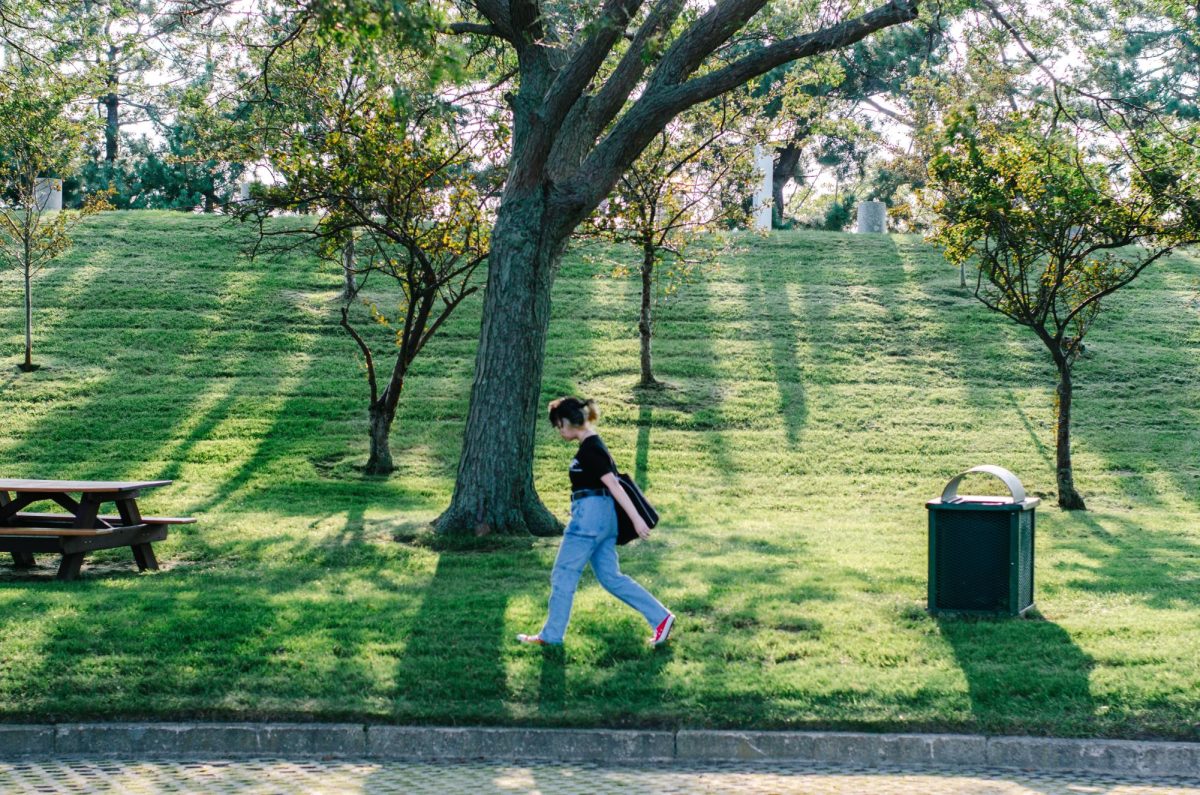In today’s tech-driven world, our connection with nature is slowly fading.
As students, we’re often preoccupied with academic responsibilities, assignments and endless notifications from our gadgets. While it’s crucial to stay on top of our studies and remain connected, science shows that spending time in nature offers significant benefits for our physical and mental health.
We’ve also become increasingly reliant on our devices. According to Mailbutler, professionals check their email an average of 15 times a day. Students aren’t far behind, with research suggesting that we check our emails at least once daily. Additionally, Utires reports that one in five drivers have never used a paper map, relying solely on digital navigation.
This growing dependency on technology is convenient, but it comes at a cost. We miss out on discovering new routes or engaging with in-person conversations. If we don’t make a conscious effort to step away from our screens and explore the world around us, our wellbeing can suffer.
Hiking is a fantastic way to reconnect with nature. The Blue Hills Skyline Trail in Quincy, Massachusetts, offers a perfect escape. As you walk along the trail, the usual urban noise fades away — no honking cars, no bustling crowds.
Instead, you’re greeted by a serene environment where your mind can become clear and you can appreciate the beauty around you. The marked trees make navigation simple, and while the physical exertion might seem daunting at first, pushing through reveals just how capable and resilient you truly are.
It’s not only about connecting with nature, but also about generating ideas. In a popular TEDx talk, Robert Bruce shared insights from a spontaneous hike he decided to take during a challenging time in his personal life. On that hike, he was able to generate new ideas almost effortlessly — ideas that he continues to benefit from today. As students, it’s easy to feel that ideas can only come to us if we somehow become super geniuses, but that is not the case.
During a solo hike, new ideas are more likely to emerge than while driving or focusing on a screen. With the new semester comes new homework and other tasks that will require UMass Boston students to generate fresh ideas — and hiking might be a powerful way to do so.
The biggest problem is time. The Center for Learning and Teaching states that a student, on average, devotes 7 1/2 hours of work each week to a three-credit course. This implies that a full load of five courses in a semester requires students to spend more than 35 hours on in- and out-of-class work!
Coupled with the state of the economy and the increasing need for employment, based on data from the CLT, students may find themselves dedicating 46-80 hours per week to school and work. With such demanding schedules, students barely have the time to even consider taking a walk. However, Better Health clarifies that 30-minute walks can still have significant long-term effects on our health.
There are numerous economic benefits to walking. One immediate effect of more individuals choosing to walk is a reduced dependence on vehicles, which are costly to buy and maintain. From reducing the external costs of traffic congestion to increasing productivity and improving morale in schools, the economics of walking are more advantageous than we might initially realize.
Luckily, there are quite a few hiking areas not too far from the Boston area. The Blue Hills Trail is the closest, and the Middlesex Fells Reservation is just a 17 minute drive from Campus Center. Other alternatives, such as taking a walk along the Harborwalk or around campus, can be just as effective. Here’s to you enjoying a walk!


